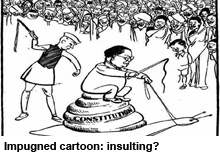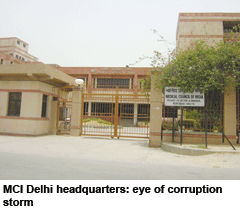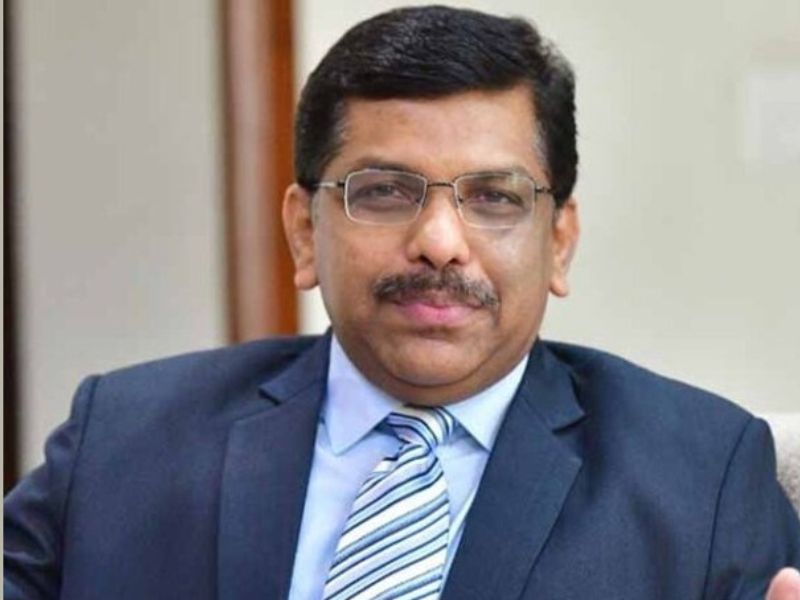Over 100,000 copies of Indian Constitution at Work, a class XI political science textbook published by NCERT (National Council of Educational Research and Training) — the country’s largest (Central government controlled) school texts publisher — have been proscribed and withdrawn from the market following protest in Parliament by caste-based political parties on May 14. Their grouse: a cartoon drawn by the late Shankar (1902-1989) way back in 1949 and included in Indian Constitution at Work depicting Dalit icon Dr. B.R. Ambedkar sitting atop a snail being egged on by the late prime minister Jawaharlal Nehru whip in hand. According to Dalit parties spokespersons, the cartoon insulted Dr. Ambedkar, the principal author of the Constitution.
 It’s a sign of the populist times that Union human resource development minister Kapil Sibal was quick to apologise. “Even though I was not the minister (when the cartoon was published in 2006), I apologise,” said Sibal, adding that a review has been ordered not just of the cartoons but also of the content of all school textbooks. “Next year we will remove all such content from the textbooks. The cartoon on Ambedkar was objectionable; concrete steps will be taken to ensure such things are not repeated,” he said in Parliament.
It’s a sign of the populist times that Union human resource development minister Kapil Sibal was quick to apologise. “Even though I was not the minister (when the cartoon was published in 2006), I apologise,” said Sibal, adding that a review has been ordered not just of the cartoons but also of the content of all school textbooks. “Next year we will remove all such content from the textbooks. The cartoon on Ambedkar was objectionable; concrete steps will be taken to ensure such things are not repeated,” he said in Parliament.According to Sibal, the Centre has taken a grave view of the matter and a six-member review committee headed by S.K. Thorat chairman of the Indian Council of Social Science and Research, Delhi has been constituted “to review the classes IX-XII social science/political science textbooks of NCERT from the point of view of identifying educationally inappropriate materials in them”. The committee will submit its recommendations “within a month” to NCERT.
Objecting to “the ill-informed, short and heated debate in the Parliament” and undemocratic banning of the impugned cartoons with immediate effect, Prof. Yogendra Yadav (senior fellow, Centre for the Study of Developing Societies, Delhi) and Prof. Suhas Palshikar (department of political science, University of Pune) resigned as chief advisors (political science) of NCERT. “I am totally puzzled. The textbooks have been approved through due process. Indian Constitution at Work is being taught in 15 states of very different political ideologies for the past five years only because the book is of very high quality,” says Dr. Krishna Kumar, professor of education at Delhi University and former NCERT director.
Nor is this a one-off incident of politicians meddling in academic matters of schools/colleges and tampering with textbooks to drum up their popularity and pursue political agendas. During the reign of the NDA government (1999-2004), Dr. Murli Manohar Joshi, HRD minister, infiltrated Hindu mythology and propaganda into history and social science texts. Last year, Delhi University’s academic council banned historian A.K. Ramanujan’s essay The 300 Ramayanas, a prescribed BA degree programme text, following violent protests by Hindu youth organisation Akhil Bharatiya Vidyarthi Parishad. In 2010, Mumbai University removed Rohinton Mistry’s Booker-nominated novel Such a Long Journey from its English literature syllabus as the Yuva Sena, the youth wing of the right wing subnationalist political party Shiv Sena, found certain segments of the book offensive and burnt copies in front of the vice chancellor’s office.
Clearly, the proclaimed autonomy of NCERT and universities over academic matters is nominal. “It is hardly a secret that the autonomy of such institutions vis-à-vis babus in the ministry is at best highly circumscribed and often non-existent. The rights of the authors and advisors vis-à-vis NCERT and that of NCERT vis-à-vis the ministry are admittedly in a grey zone,” says Prof. Yogendra Yadav writing in The Indian Express (May 14).
Against this backdrop of growing intolerance of the political class to criticism even as its performance as legislators and ministers goes from bad to worse, the recommendations of the six-member Thorat committee constituted to review classes IX-XII political science textbooks to “identify educationally inappropriate material” is a foregone conclusion. Dull and boring texts will become more dull and boring.
Swati Roy (Delhi)
Liberalisation price
Highly prized medical education capacity expansion received a boost on May 25 with the Union ministry of health and family welfare giving the green signal to the Medical Council of India (MCI) to authorise the country’s 335 (allopathic) medical colleges to promote branch campuses in under-served states. Established in 1934, MCI licences, supervises and ‘recognises’ all education institutions which offer the undergraduate MBBS degree programme and postgrad MD, MS and specialist diploma certification.
According to health ministry sources, recognised medical colleges will soon be permitted to establish new campuses in the states of Bihar, Jharkhand, Chhattisgarh, West Bengal, Rajasthan, north-eastern India and some parts of Uttar Pradesh and Madhya Pradesh. This liberalisation initiative is expected to increase the number of seats in medical education from the current 41,469 to 80,000 in 2028 and help the health ministry double the population of qualified allopathic medical practitioners countrywide to 1.2 million by 2028. The World Health Organisation’s norms stipulate an ideal doctor-patient ratio of 1:1,000 whereas India’s ratio is currently 1:1,953.
Although the number of medical colleges in India is currently 335 — arguably the largest in the world — they graduate a mere 41,469 MBBS medical practitioners annually against the country’s need of 80,000 medical graduates to attain the goal of 1.2 million doctors by 2028. On the other hand, the neighbouring People’s Republic of China which has only 188 medical colleges, graduates 175,000 doctors annually — an average of 930 graduates per college against the average of only 100 per college in India.
 Confronted with a chronic shortage of qualified medical practitioners, the health ministry/MCI has relaxed its norms. In December last year, medical colleges in the socio-economically backward states of Chhattisgarh, Odisha, Uttar Pradesh, Bihar, Rajasthan, and Jharkhand were permitted to spread their facilities across two campuses — college and hospital — subject to their being within 10 km of each other. Moreover, the minimum campus area per medical college was reduced from 20 acres to ten acres in these states.
Confronted with a chronic shortage of qualified medical practitioners, the health ministry/MCI has relaxed its norms. In December last year, medical colleges in the socio-economically backward states of Chhattisgarh, Odisha, Uttar Pradesh, Bihar, Rajasthan, and Jharkhand were permitted to spread their facilities across two campuses — college and hospital — subject to their being within 10 km of each other. Moreover, the minimum campus area per medical college was reduced from 20 acres to ten acres in these states.A proposal to allow split-campuses in nine big cities is also under consideration of the Union health ministry. “Though we don’t like the idea of split-campuses in big cities, the proposal has not been rejected,” says a ministry official, who preferred to remain anonymous.
The accentuating shortage of qualified allopathic doctors countrywide — complicated by the overwhelming majority practising their craft in urban India — has prompted relaxation of other norms as well. In 2009, colleges with 1,000-plus beds in attached hospitals were allowed to admit 250 MBBS students instead of 150 and in postgrad medical education, the faculty-student ratio was relaxed from 1:1 to 1:2.
However, liberalisation of medical norms to graduate a larger number of allopathic doctors annually has extracted a price in terms of quality of medical education. MCI — mandated to maintain the quality of medical education in the country — was in the eye of a storm in 2010 for approving too many colleges with sub-standard infrastructure and inadequate faculty. MCI’s then chairman Dr. Ketan Desai was arrested on corruption charges on April 22, 2010 and the entire board was dismissed and replaced by a chairman and five governors. Their term expired last year and a new four-member board has been constituted under the chairmanship of Dr. K.K. Talwar.
Despite reservations about quality dilution, the general consensus within the medical practitioners’ fraternity is in favour of MCI’s relaxed norms. “We have such an acute shortage of seats in medical education that our students have to go abroad to study medicine in small Asian countries such as Nepal and Bangladesh which offer sub-standard education. Even after relaxing the norms, our standards will remain superior to the quality of education offered in Nepal and Bangladesh,” says Dr. K.K. Aggarwal, a renowned Delhi-based cardiologist.
Not if MCI whose corrupt practices — and the corruption of the country’s amoral medical practitioners — were unsparingly exposed by Bollywood star Aamir Khan’s Satyamev Jayate weekly television programme on May 27, don’t get their act together.
Vimal Chander Joshi (Delhi)
























